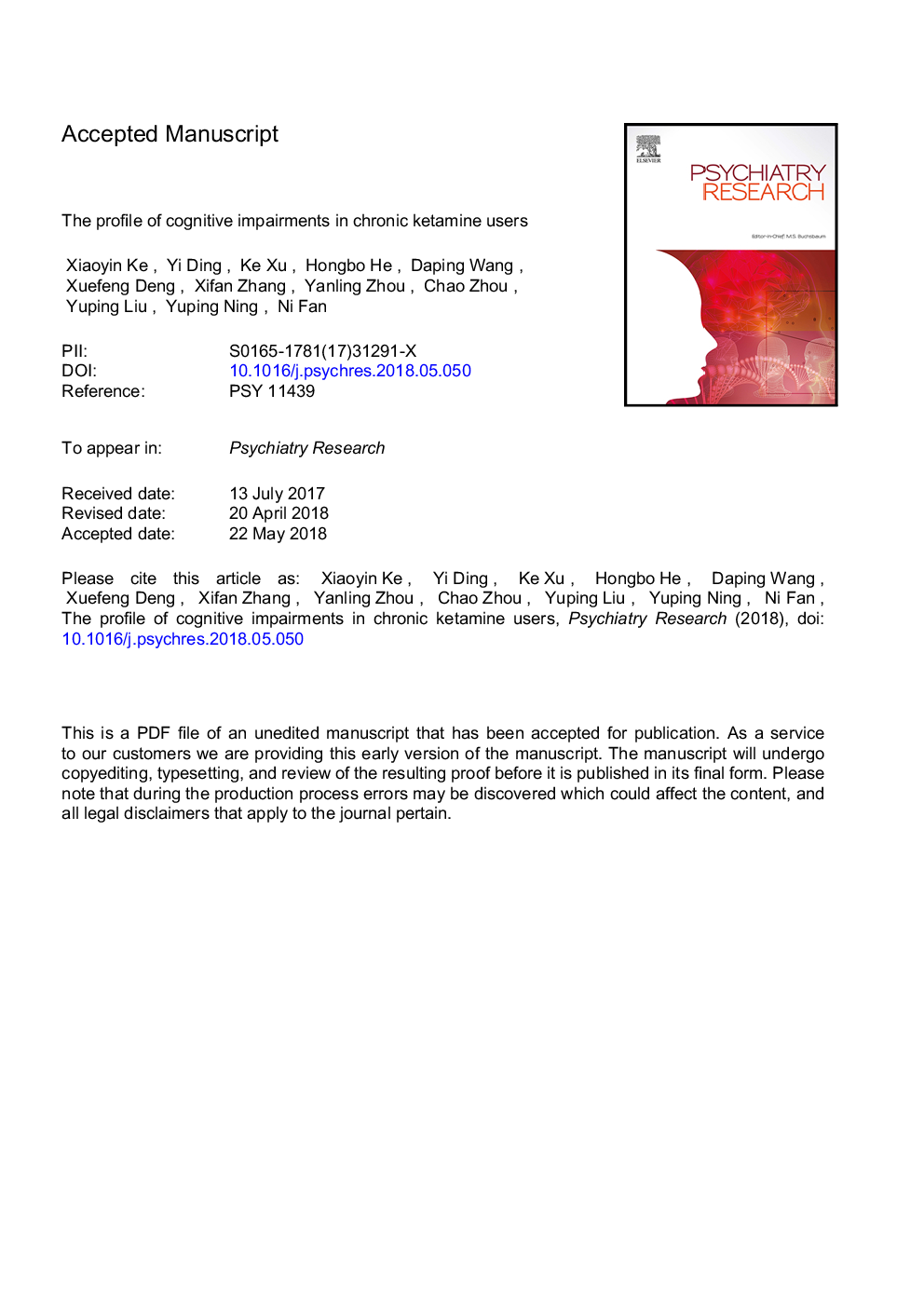| Article ID | Journal | Published Year | Pages | File Type |
|---|---|---|---|---|
| 6811256 | Psychiatry Research | 2018 | 38 Pages |
Abstract
The aim of this study was to examine the cognitive function in chronic ketamine users. Factors correlated to cognition impairments were analyzed. Sixty-three chronic ketamine users and 65 healthy subjects were recruited. Cognitive function was assessed by using immediate/delayed visual reproduction (IVR/DVR) tasks, immediate/delayed logical memory (ILM/DLM) tasks, Stroop test, Wisconsin card sorting test (WCST), and continuous performance test (CPT). Psychopathological symptoms were assessed with the Positive and Negative Syndrome Scale (PANSS), Beck Depression Inventory (BDI) and Beck Anxiety Inventory (BAI). Ketamine users performed worse than controls on the IVR, ILM, DLM, Stroop and auditory CPT tests. IVR and DVR, color-naming and color-interference-reading scores were positively correlated with education level. In ketamine users ILM scores were negatively correlated with the negative subscale of PANSS. DLM score was positively correlated with average dose of ketamine use. Word-reading score was positively correlated with education level, and negatively correlated with duration of ketamine use. False hits in auditory CPT was positively correlated with duration of ketamine use. Number of trials to complete the first category and perseverative errors on WCST were positively correlated with the duration between the test and last ketamine use. Chronic ketamine users had cognitive impairments across multiple domains.
Related Topics
Life Sciences
Neuroscience
Biological Psychiatry
Authors
Ke Xiaoyin, Ding Yi, Xu Ke, He Hongbo, Wang Daping, Deng Xuefeng, Zhang Xifan, Zhou Yanling, Zhou Chao, Liu Yuping, Ning Yuping, Fan Ni,
